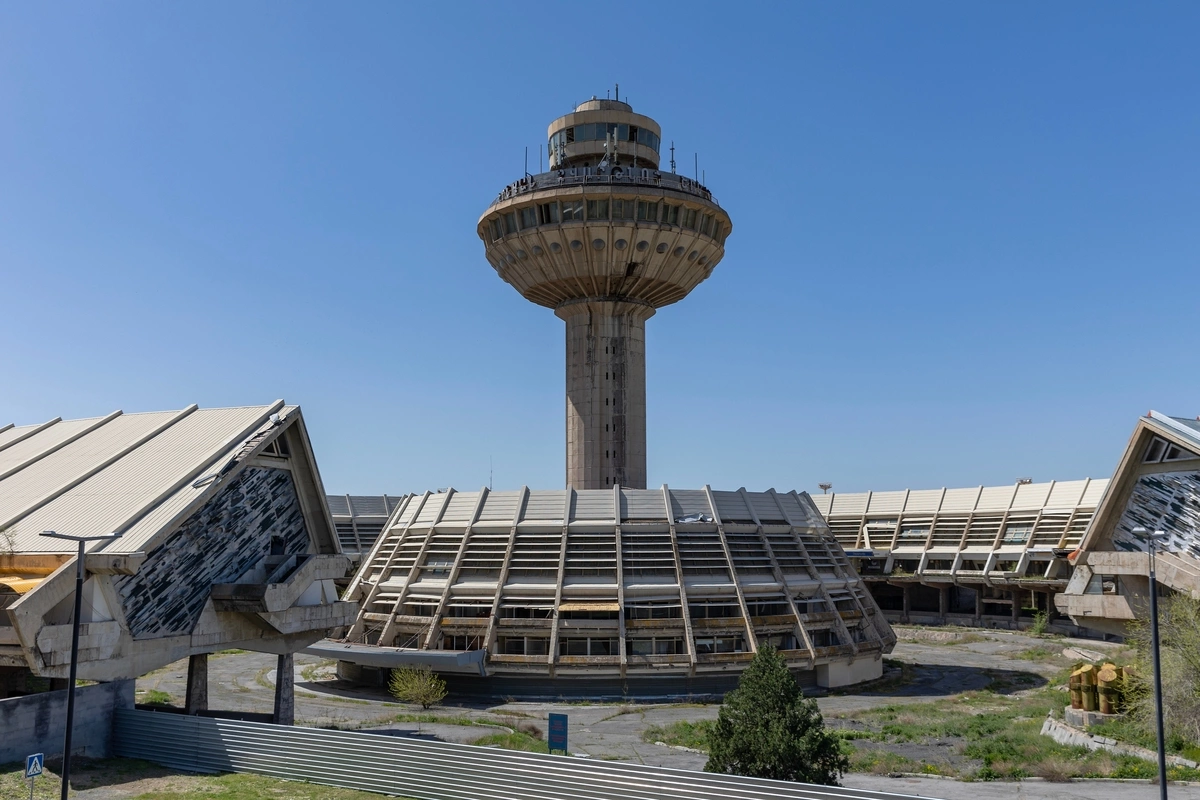
After Armenia declared independence in 1991, Russian Border Guards have patrolled two of its four borders, including, until last week, its main international airport.
Image: Alexey Smyshlyaev/Shutterstock
Russian border guards left Yerevan’s Zvartnots Airport last week, concluding their nearly 32-year presence. The first point of contact for many citizens and tourists arriving by air in Armenia, their exact duties and numbers were never formally announced. The 1992 agreement between the Russian Federation and the Republic of Armenia instead only refers to the Border Directorate of the Federal Security Service (FSB) ensuring the protection of the border with Turkiye and Iran. The Armenian National Security Service (NSS) only briefly mentions that the Russian Border Guard Service was stationed at Zvartnots alongside its own Border Guard Troops.
In lieu of a formal agreement, the decision to deploy at the airport had been made verbally. This explains why the Armenian Prime Minister simply announced in February that he had asked Moscow to withdraw them. Though Moscow had warned that this would cause “irreparable damage” to relations between the two countries, Russian President Vladimir Putin and Armenian Prime Minister Nikol Pashinyan later agreed in May that they would leave by August 1. Their last day of service on July 31 was cordial, marked by a protocol signed by Edgar Hunanyan, Commander of Armenia’s NSS Border Troops, and Roman Golubitsky, head of Russia’s FSB Border Directorate in Armenia. Hunanyan thanked his Russian counterpart for over three decades of joint service. Golubitsky in turn expressed hope that the country’s security “will be ensured at the same high level by our Armenian colleagues.”
Meanwhile, Putin’s press secretary Dmitry Peskov further stated that Russian border guards would remain on the Iranian and Turkish borders as per the 1992 agreement. However, Pashinyan has requested the Russian Border Guard Service to leave the Azerbaijan border area. That had been solely, the responsibility of the Armenian Ministry of Defence until 2020 but Armenian guards had been temporarily and informally reinforced by Moscow after the 44-day war with Azerbaijan. The Russian stand-down has already happened in some locations and the NSS Border Guard Troops recently replaced the Armenian military on the border’s newly demarcated Tavush-Gazakh section of the Armenia-Azerbaijan border.
Though the total number of Russian border guards in is unknown, Russian media occasionally uses the figure of 4,500. Only the border with Georgia has been the sole preserve of NSS Troops. “The matter is of a practical and not political or geopolitical nature,” said Pashinyan, stressing that his own border guards now had “sufficient experience and skills” to independently conduct border control by themselves, especially at the airport.
In the end, the last day of service for the Russian Border Guard Service at Zvartnots on 31 July was cordial enough. In the presence of what Armenian media described as a “few dozen officers of Russia’s Federal Security Service (FSB),” a protocol on the transfer of authority at the airport was signed by Edgar Hunanyan, Commander of the NSS Border Troops, and Roman Golubitsky, head of the FSB Border Directorate in Armenia. Hunanyan thanked his Russian counterpart for over three decades of joint service. Golubitsky in turn expressed hope that the country’s security “will be ensured at the same high level by our Armenian colleagues.”
Nonetheless, despite Pashinyan's assertion that there was no geopolitical motivation behind the move, others see the withdrawal of border guards as part of the continuing deterioration in relations between Moscow and Yerevan and indicative of the Armenian prime minister’s turn westwards. The departure of the border guards also comes five months after Pashinyan’s announcement that Armenia had ‘frozen' its membership of the Russia-led Collective Security Treaty Organisation (CSTO) and would no longer pay its dues.
Others are concerned that there could be security holes left in the wake of this departure. Opposition media accused the authorities of being “pro-Western servants,” alleging that they wanted to prevent Moscow from recording the arrival of US and EU officials to the country, including western security and intelligence services. In complete contrast, others fear that Russia will leave behind a system which allows them surveillance possibilities.
Some in Armenia share Mammadov’s concerns. Daniel Ioannisyan, a civil society activist close to the government, also claims that Moscow will still have access to such information while it remains stationed on the border with Iran.
For now, however, many in Armenia have welcomed the move, which some hope is just the start. “The next step in the process should be the withdrawal of Russian border guards from the Armenian-Iranian border,” political scientist Areg Kochinyan told media.
Such hopes might be premature, however. Four days after ending their deployment at the airport, local media remained unsure whether they will instead serve elsewhere in the country. Moreover, given that their presence on the border with Iran is determined by the same formal agreement that includes the border with Turkiye, that might not prove as straightforward as simply asking them to leave Zvartnots.
Share on social media